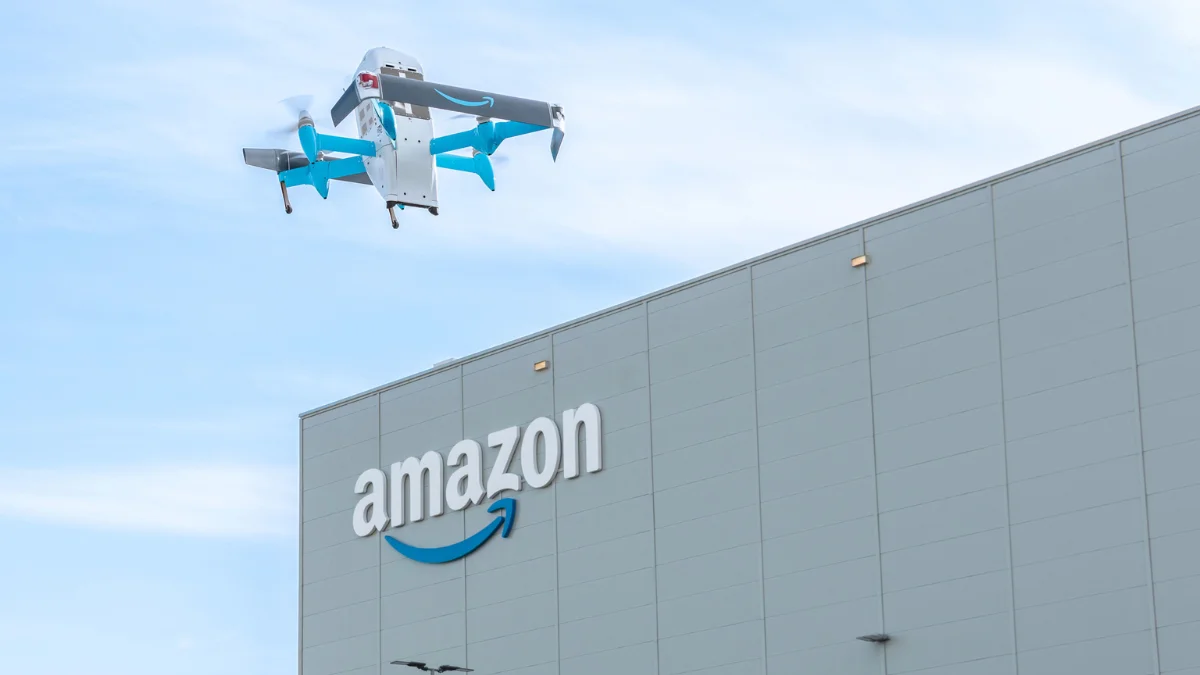Necessary Always Active
Necessary cookies are required to enable the basic features of this site, such as providing secure log-in or adjusting your consent preferences. These cookies do not store any personally identifiable data.
|
||||||
|
||||||
|
||||||
|

In Focus
The investigation into Amazon’s drone delivery operations has intensified after a device clipped an overhead cable in Texas, prompting a renewed Amazon delivery drone probe that is drawing industry-wide attention. According to CNBC, the Federal Aviation Administration (FAA) opened a review after an MK30 drone operated by Amazon struck and snapped an internet cable in Waco during a scheduled delivery.
The Amazon drone incident in Texas involved the MK30 drone performing a routine flight before making contact with an overhead line, triggering an emergency landing protocol. The FAA confirmed that it has initiated a formal review to assess whether existing flight procedures and safety systems were followed. Recently, in October 2025, Amazon has resumed its drone delivery services in Phoenix after a temporary suspension.
The National Transportation Safety Board stated that it is not participating in the investigation. No injuries or major service disruptions were reported, but the event renews concern across logistics sectors that rely on autonomous aircraft.
Amazon has repeatedly emphasized its commitment to safety in drone operations. In its Prime Air Safety FAQ, the company stated, “Safety is our top priority, and our drones are designed with multiple redundancies and advanced stability systems to ensure safe operations in all approved environments.”
Even as regulators examine the circumstances surrounding what happened in the Amazon Texas drone incident, the company notes in a previous press release, “We continue to work closely with regulators to ensure that every phase of our drone delivery program meets the highest safety standards.”
The FAA evaluation occurs during a period of heightened scrutiny. Amazon temporarily paused certain drone delivery operations earlier this year following unrelated testing incidents and resumed services after receiving system approvals.
The company has outlined its long-term goal to scale drone delivery capabilities significantly, while market rivals such as Walmart advance their own aerial logistics programs, strengthening competition in the US retail space.
Amazon has recently unveiled a prototype of Amelia, smart delivery glasses that give drivers a hands-free experience, eliminating the need to keep checking their phones, their surroundings, and the delivery packages.
Essential Insights From the Investigation
The intensifying Amazon delivery drone probe also surfaces at a time when other large retail operators, including Walmart, expand their autonomous delivery pilots in multiple US markets. Analysts note that the regulatory environment remains a decisive factor influencing whether large-scale drone delivery becomes standard across urban and suburban regions.
As drone delivery regulations in the US evolve, companies may need to recalibrate their deployment plans to ensure compliance with updated risk mitigation protocols. In other news, Amazon has also rebranded Project Kuiper to the Amazon Leo satellite network.
The FAA’s review underscores the increasing operational complexities associated with large-scale autonomous delivery networks. For businesses relying on rapid logistics innovation, the outcome of this inquiry may influence timelines for drone-enabled fulfillment and shape competitive dynamics between major retail operators, including Walmart’s expanding aerial delivery initiatives that directly rival Amazon.
The incident reinforces that even mature programs must demonstrate reliable performance in densely wired environments and maintain transparent engagement with regulators as drone operations accelerate in commercial settings.